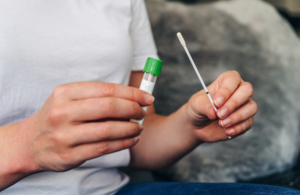From engines in the eighteenth century, to life sciences in the twenty first, British business and innovation has a proud history of leading the world, and shaping the future.
And today we need you to do so again.
And play your part in ushering in the clean, green future that is within our grasp.
The task could not be more urgent.
Because we are running out of time to protect our precious planet.
In 2015 the countries of the world signed the Paris Agreement, an international deal to tackle the threat of climate change.
And they committed to do all they could to limit global temperatures to well below 2 degrees, and closer to 1.5 degrees.
Because the science said this would avoid the very worst effects of climate change.
But since that agreement was signed, the world has not done nearly enough.
And now, to keep that 1.5 degree target within reach we must halve global emissions by 2030.
And reach net zero by the middle of the century.
That is an enormous task.
But it is at the heart of our aims for the next United Nations climate conference, COP26, which will be held in Glasgow in November.
We want COP26 to put the world on a path to driving down emissions, until they reach net zero by the middle of this century.
And to keep the 1.5 goal alive.
And that requires action from governments.
As COP26 President I am pushing all countries to come forward with ambitious targets to reduce their emissions.
But to succeed, we also need the innovation, and the influence and the energy of the private sector on our side.
That is why I am urging all companies to join the Race to Zero campaign.
A link on how to do so has just gone up on the COP26 Twitter feed.
Race to Zero is a UN campaign that commits you to reach net zero emissions by 2050 at the latest, and to short term targets to get there.
Targets based on the science, so that net zero is not some vague aspiration but a concrete plan.
This is absolutely vital.
The days of nodding to sustainability are behind us.
Today, the only climate action that matters is action aligned with the goals of the Paris Agreement.
So it is fantastic that real momentum is building across the corporate world.
And that British firms are leading that charge. 780 British companies have signed up to Race to Zero, more than double any other country.
With companies from practically every corner of the economy on board, from construction to cosmetics, automotives to aerospace.
Over a third the FTSE 100, and 850 small businesses, have signed up.
All dedicated to creating the future that our planet needs.
What these firms are doing is not just good for the climate. Frankly, it’s smart business.
Because the direction of travel is absolutely clear.
The world is going green, and the opportunities are enormous.
And those that do not act now, will be stumbling to catch up as their competitors sail ahead into the clean, low carbon future.
So to all those of you that have not yet joined the Race to Zero: I urge you to do so.
And to those of you that have: thank you.
Now please, work with your trade associations and with your supply chains to urge them to do exactly same.
By using your purchasing power to drive change across the economy, your impact is multiplied many times.
So please, make a commitment to net zero a condition of doing business with suppliers globally, and support our efforts on vital areas like power generation, clean transport and halting deforestation, where action is essential to keeping 1.5 degrees alive.
The UK COP26 Presidency is calling on governments to act, to put an end to polluting vehicles, to put an end to coal power and coal finance.
And we’re working with them to accelerate the move to zero emissions vehicles and clean energy, and to protect forests and help farmers make a better living.
But, again, we need business on board.
So we ask you to exchange your polluting vehicles for clean ones.
Remove deforestation from all your supply chains.
And commit to using clean energy, which is now cheaper than new fossil fuels in most of the world.
In short, I am asking that, in the proud traditions of British innovation and enterprise, you lead the world towards the clean, green future that is ahead.
Seize the opportunities on offer and help protect our precious planet for future generations.
Thank you.

